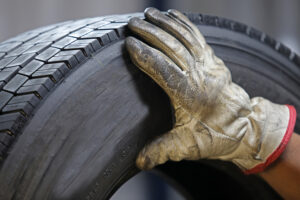MOT Extension advice for drivers during Coronavirus
Coronavirus has thrown our whole society and way of life into a frenzy. With businesses closing, employees forced to work from home and restrictions on our movements and activities, daily life will be in disarray until further notice.
Amongst the worries as a result of the impact of Covid-19 is the penalties and consequences for not being able to fulfill mandatory tasks – one of the main ones for drivers being getting your vehicle’s MOT.
According to new government guidance, if your car, van or motorcycle is due an MOT on or after March 30th 2020, you will be automatically given a 6 month exemption and extension from your original expiration date. For example, if your MOT is due on April 11th 2020, you will have till October 11th 2020 to get your MOT.
The guidance also states that the conditions of this extension are that you are required to keep your vehicle safe to drive. So, what exactly does this entail? For those who are unsure of what they should be looking for, here are some starting points.
Lights
Over time, especially when not driven, dust can settle on lights which reduces their efficacy. It is important to remove and clean the headlights. Even if you aren’t planning on driving, switch on your lights and walk around the car to make sure all your lights are in working order. It is also a good idea to test your brake lights up against a wall to make sure they are working properly.
Fluid Levels
Engine oil, brake fluid and antifreeze should be regularly topped up. Indications that you may need to replace car fluids are darkening and thickening or the presence of residue within the fluids.
Brakes
As with every other feature of your car, your brakes should be regularly checked and maintained in order to keep them in good working order. When not driven in a while, brakes can be stiff. If you have a driveway or live on an enclosed street, it is a good idea to drive down the road to ensure your brakes continue working. If they feel like your car is taking longer to come to a halt when braking, your brakes or brake pads may need replacing.
Tyres
As the only part of your car to have contact with the road, some may argue that tyres are the most important safety features on your vehicle. There are 2 main things to look at when measuring the safety levels of your tyres.
Tread Depth – The legal tread depth of a standard car is 1.6mm. Anything below this is considered illegal, dangerous and should be replaced. Checking your tread depth is easy. While some tyres have indicators on the tread itself, it’s as simple as taking a 20p piece and placing it on the tread. If the outer edge of the coin is visible, then your tyre tread is below the legal minimum and you should look to get it changed as soon as possible.
Tyre Pressure – It is recommended to check your tyre pressure at least once a month. Under-inflated tyres will have a negative effect on your tyres wear rate, load capacity and fuel economy. You can usually find the optimum pressure for your car on the inside of your door or petrol cap. If you can get to a petrol station or garage, it is easy enough to check your tyre pressure and inflate them accordingly. If you are unsure about any of the above or think that there is a possibility your tyres are unsafe, you should think about replacing them before your next MOT. Get in touch with the team at etyres for more information about changing your tyres during this time.




